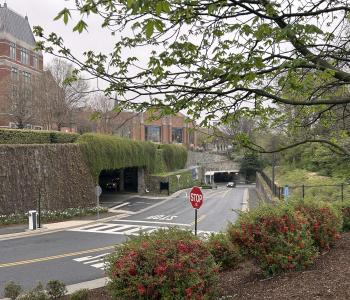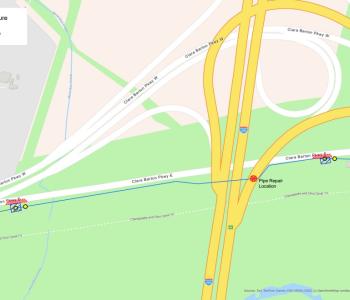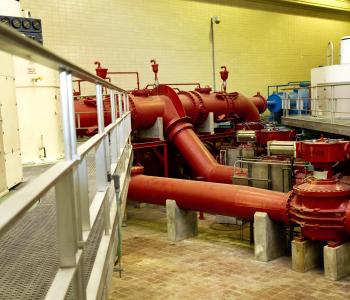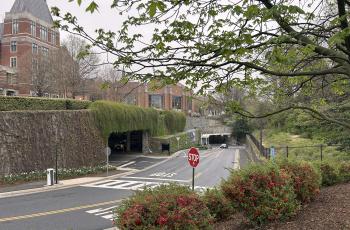New District Lead Service Line Replacement Program Offers Historic Opportunity To Replace Old Plumbing
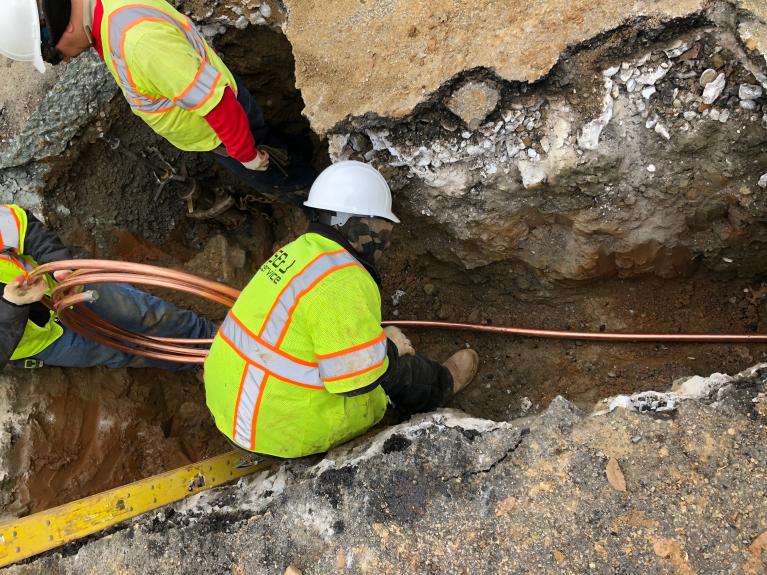
DC Water today announced plans to work closely with the District government to implement a new lead service replacement program that offers free and discounted replacements of lead water service pipes on private property for thousands of homes across the city. This program will be implemented once it is funded by the District, which is anticipated in October 2019.
The new program, approved by the D.C. Council late Tuesday and headed to Mayor Muriel Bowser for her signature, establishes a city-funded program to encourage the removal of lead service lines located on private property– the small diameter pipes that bring water from the water main into homes.
“This is a game-changer in terms of making significant progress towards removing all lead pipes from the water system,” said DC Water President David L. Gadis. “However, I would like to see us go even further. My hope is that we can move towards a plan where every inch of lead service line in the city is removed within the next 10 years. That is ambitious but it's achievable if we roll up our sleeves and work together.”
Under current law, DC Water is permitted to replace the portion of the lead water service line that lays buried within public space but not the portion that is on private property – the pipe that runs from the property line to the building.
The new Bill does four things:
- First, it authorizes DC Water to use District appropriated funds so District homeowners can get their entire share of the lead service line replacement costs paid for by the city government when it coincides with DC Water doing water main replacements or after an emergency replacement of the water main or lead service line. This provision does not take effect until after the District government provides funding for the program in October next year when the new fiscal year starts.
- Second, in cases where the water service line on the public side of the property is not lead, District homeowners of moderate or low income can get 50 percent or more of the cost of lead service line replacement on private property paid for by the city government. This provision also does not take effect until after the District government provides funding for the program.
- Third, in cases when there are lead service lines on private property and in public space, but the District’s funds are insufficient to cover the costs, or where DC Water does not have any planned activities to replace water mains and the lead water service lines connected to them within two years or the street is not under a DDOT moratorium, the property owner may participate in DC Water’s Voluntary Lead Service Pipe Replacement program. Under this program, the property owner agrees to pay the costs for the replacement of the lead pipe on private property and DC Water will replace the pipe in public space at the same time.
- And finally, the Bill creates a new series of outreach, education and disclosure requirements for home sellers and real estate agents to increase awareness of lead service issues.
Water mains in DC Water’s distribution system are not made of lead. However there remain roughly 70 miles of lead service lines connecting homes to the public water mains in the District.
While in many cases lead water service lines may not pose any immediate hazard, the simple presence of lead pipes is a risk factor for lead exposure that DC Water has long encouraged homeowners to address. Recently DC Water mailed letters to residential customers in homes with known lead service lines to encourage them to take advantage of DC Water’s existing Voluntary Lead Service Pipe Replacement program. DC Water has also created a service line map where customers can check to see what type of pipes connect their home to the water main.
The program for lead line replacement originated with Ward 1 Council member Brianne Nadeau, who last year introduced legislation to help DC Water customers afford the cost of their lead service replacements. The Bill was then revised by Council Transportation & Environment Committee Chairperson Mary Cheh of Ward 3.
More information about the issue of lead, tips to reduce risk of lead exposure, and information about the Bill can be found at www.dcwater.com/lead-pipe-replacement or by contacting DC Water customer service at (202) 354-3600. Additional information about enrolling in the program and how the legislation will be implemented will be added to the website in coming months.
Learn more at dcwater.com/LeadBillFAQ.



